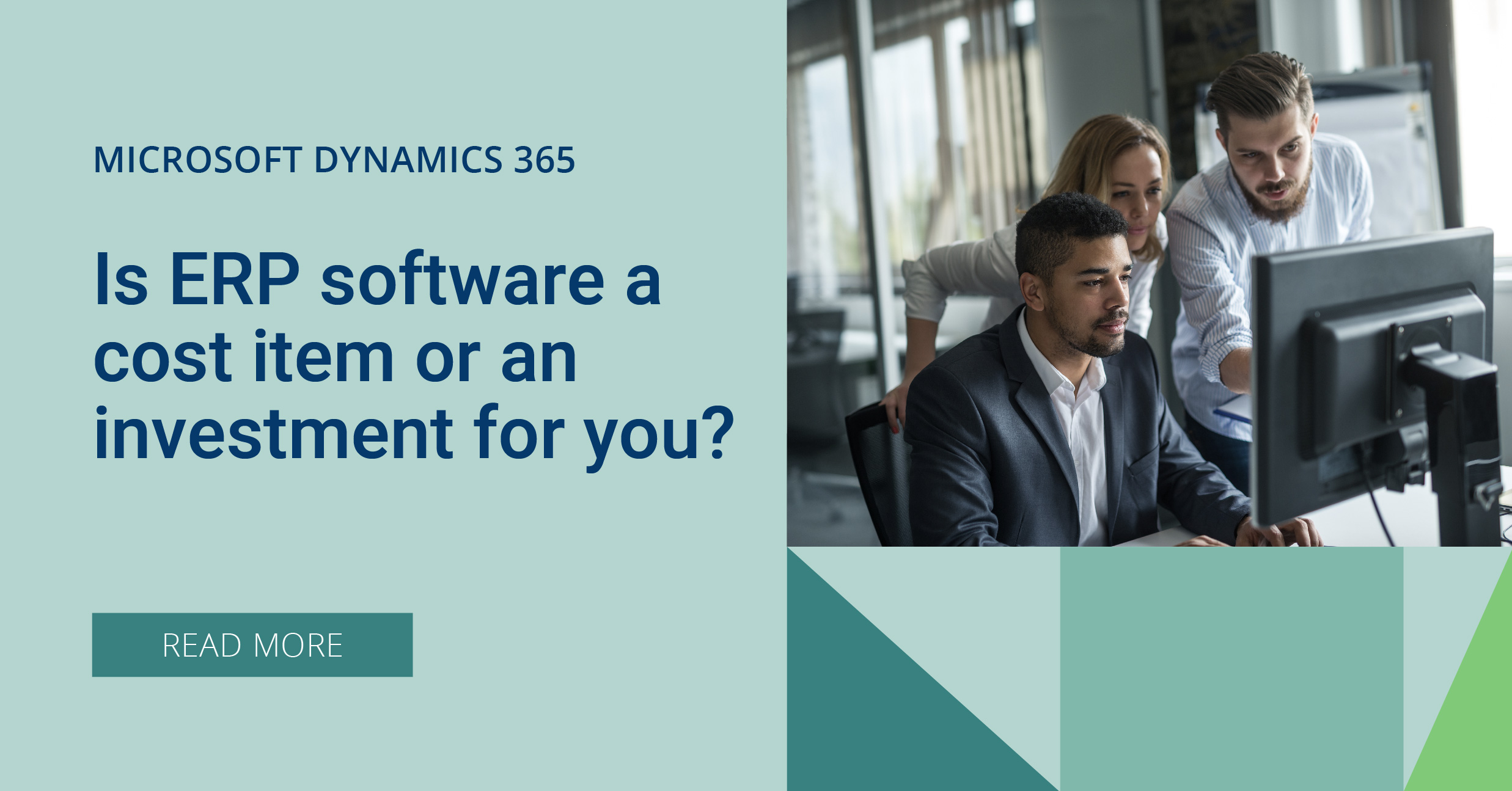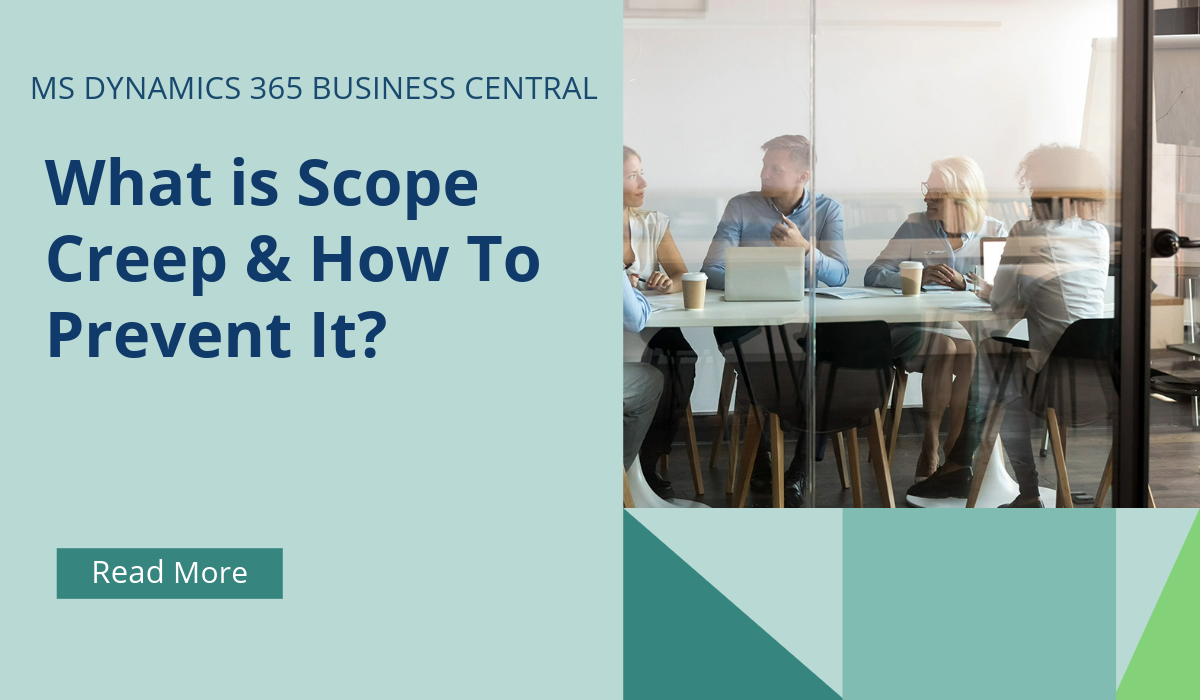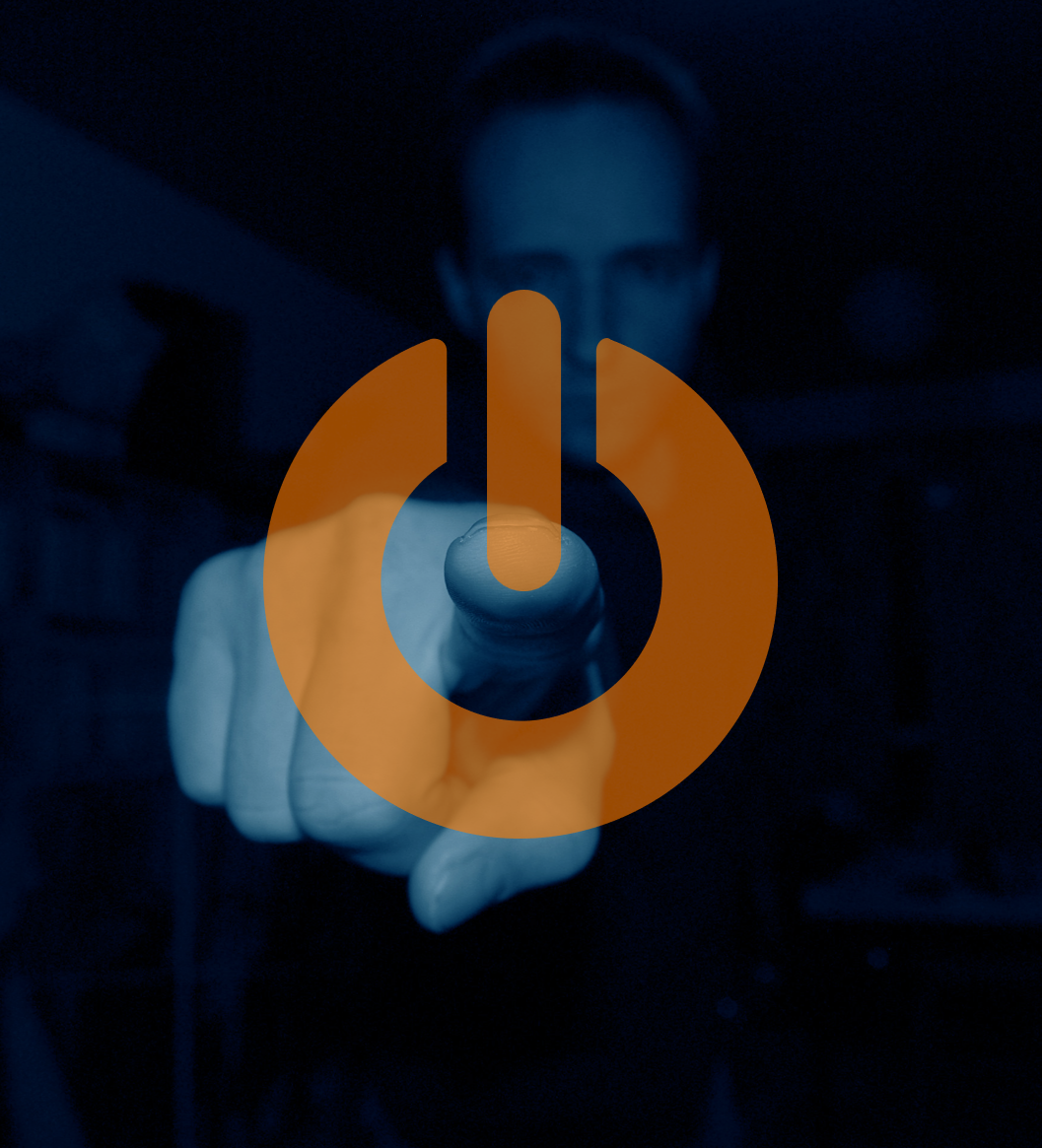
Is ERP software a cost item or an investment for you?
Traditionally, ERP software has been regarded as a cost. During the selection and implementation phases, most organizations have tried to do everything to limit costs as much as possible.
In today’s modern world, the role of good ERP implementations is widely accepted in most boardrooms. A growing number of organisations have accepted that reliable data, customer-oriented business processes and the right mindset heavily influence the results of any company.
However, cost-oriented thinking is still influencing organizations greatly – especially in SMB markets. This is not always beneficial!
Many companies are plainly unhappy with their current, outdated ERP software. Widespread complaints include too much complexity in usage, shortcomings in innovation and insufficient flexibility. Forced by necessity, end users are taking refuge in Excel or Access – with all the predictable consequences.
It’s surprising that these companies still persist in using an outdated ERP system. The argument that ‘the investment has not yet been depreciated’ proves to be more important than a decrease in reliability of delivery, customer loss and increasing costs of failure. Far too often, the cup of poison is emptied to the bottom before a better solution is sought.
The element of cost still plays a substantial role in choosing a new ERP software. Without any hesitation, a potential vendor can be discarded on the basis of an initial price difference of just 3 per cent, even though that vendor offers a 30 per cent more advantageous prospect in terms of innovation and continuity.
Do you belong to that category of companies who are unhappy with their current ERP? If so, it’s interesting to think back to the moment you selected your current solution. Do you still remember which systems and vendors were on your shortlist?
Imagine where you might have ended up with those solutions. Perhaps you would conclude that with a different choice, today there would not be the necessity to completely replace your ERP. You might realise that there would be successive versions with functionality that you now need urgently. You might decide that the other implementation partner did make good on his promise to invest actively in their knowledge of your industry.
When you no longer see ERP software as a cost – but rather as an investment – you create a different perspective to approach the selection. The yield of your new software system, the number of years you will be able to use it – and hence depreciate the system – and the possibility of growing to successive generations of the software suddenly become much more important.
In this way, there is a good chance that you will select a more effective and profitable solution!
If you are preparing to make a change to Dynamics 365 Business Central, this might be the right time to act. By contacting us today, you will be taking the first step towards this change.
December 15, 2022
RECENT POSTS
What is Scope Creep & How To Prevent It?
Scope creep occurs when a project’s requirements expand beyond the initial planned scope, leading to delays, budget overruns, and compromised quality. To prevent scope creep in your IT project, consider the following [...]
Project Fails – How and Why?
IT projects can fail for a variety of reasons. Some statistics say they fail more often than they succeed! Studies tend to show the same reality: projects very often fail. They run late. [...]
Empowered for Business Central : Rental Management
Rental Management is a feature that enhances the capabilities of Microsoft Dynamics 365 Business Central. With Rental Management, users can: Efficiently manage rental resources, whether numbered or non-numbered. Organize rental resources into [...]


